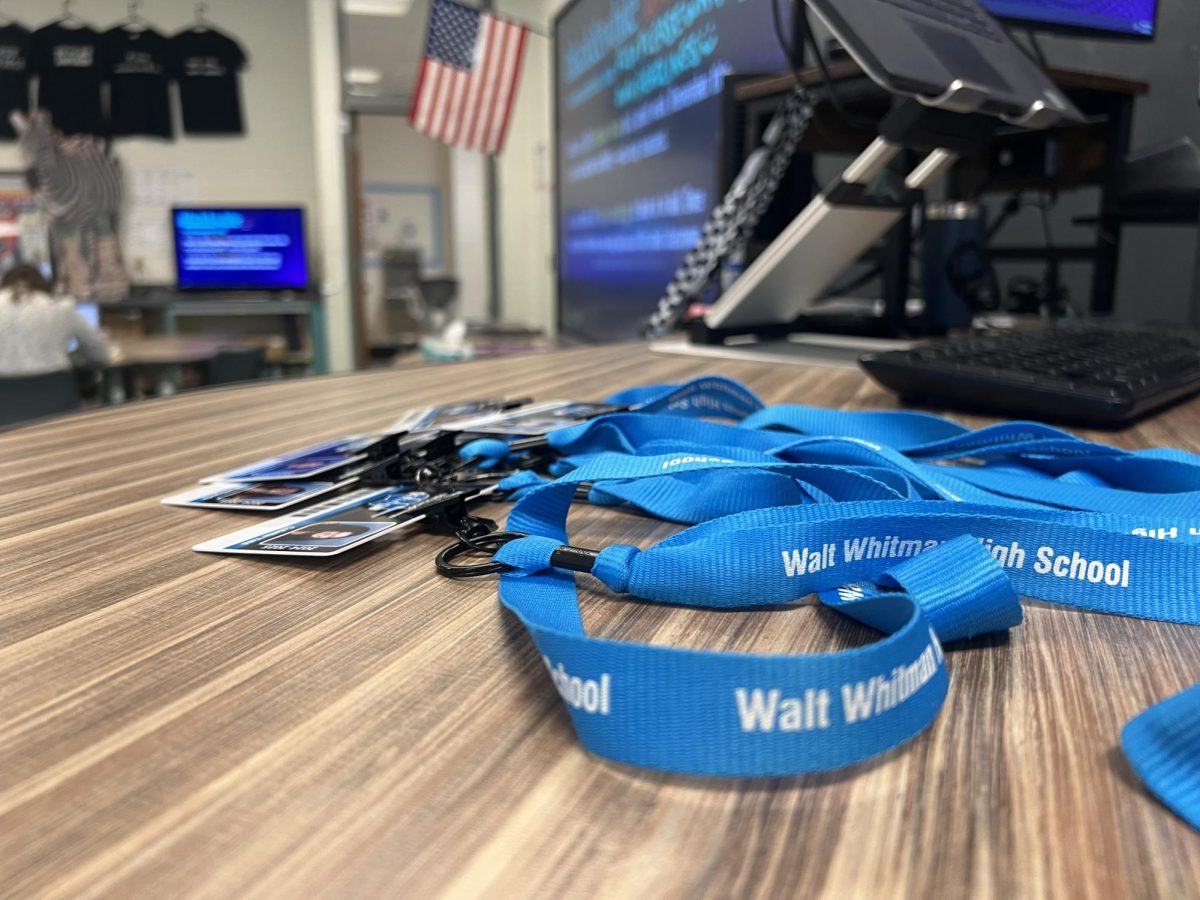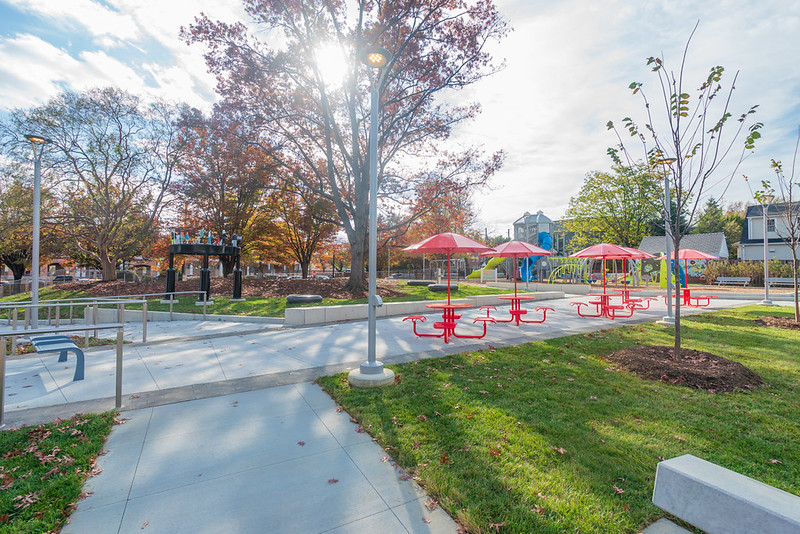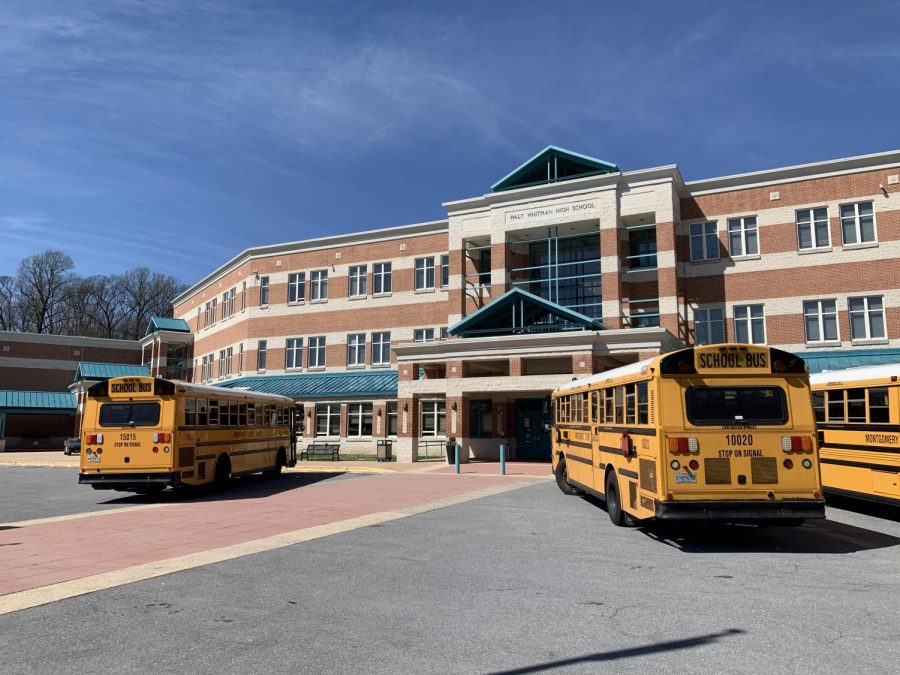On Feb. 22, the MCPS Board of Education (BOE) tentatively adopted the Fiscal Year 2025 operating budget. The budget will continue to fund the Montgomery Virtual Academy and Innovative Schools Calendar at Arcola Elementary School, but will eliminate the ISC at Roscoe R. Nix Elementary School. The Board recommended that administration at the MVA and Arcola Elementary School continue to monitor the efficacy of the programs.
The BOE has held three public hearings and three work sessions to receive feedback from the community, including a hearing on Tuesday, Feb. 20 in which parents, teachers and students testified to the board on whether to eliminate or modify several programs, including the MVA, for FY25.
On March 1, the BOE will send the tentative budget to the County Executive and County Council for consideration. Over the next few months, the County Council will hold public hearings deliberating the proposals. The Council must finalize the FY25 budget by June 1, and it will take effect on July 1.
As students returned to in-person learning in 2021, MCPS established the Virtual Academy as a permanent virtual learning alternative. The Elementary and Secondary School Emergency Relief fund (ESSER), a federal COVID-era grant that partially funds the MVA, will expire this coming fiscal year. To compensate for the grant’s expiration, former Superintendent Monifa McKnight announced a funding increase of $976,763 for the MVA as a part of her proposed operating budget in December of 2023.
At the hearing on Tuesday, some community members testified that the MVA greatly benefits students with disabilities, social anxiety, difficulty focusing or concerns about physical or emotional safety at an in-person school. Students thrive in the welcoming and safe environment of the MVA, something they could not achieve at in-person school, parent Courtney Evans said in her testimony.
Parent Amy Orem stressed the importance of the MVA for her son, who works much better and feels more comfortable in a virtual setting, she said.
“If they get rid of funding for the Virtual Academy, these kids will have to go into other programs in schools,” Orem said. “It could be really difficult for somebody like my son who hasn’t gone to a brick and mortar school.”
Some MVA teachers testified in support of the program, including Nancy Perry who has seen the academic development of her students first-hand. Perry said the program creates equity-focused classrooms where students feel comfortable asking questions.
Several MVA teachers and parents also testified that virtual learning helps students with disabilities reach their full potential by allowing for short breaks when necessary, cutting out distractions and preventing bullying.
Students at the MVA reiterated these sentiments. Student President of the Middle School MVA Zaina Shaikh testified that she quickly grew to love the comfortable and accepting atmosphere and feels excited to go to school every day.
“The MVA has taught me an endless amount of valuable lessons, with the biggest one being that you don’t need to physically interact with others in order to build a strong relationship with each other,” Shaikh said.
Many parents of immuno-compromised and high-risk students also choose to send their children to virtual school for health reasons. Siblings Ethan, a fourth grader at the MVA, and Amelia Evans, a kindergartener, have had Long COVID — a condition where symptoms resurface long after recovering from COVID-19 — since 2020 and are both high-risk individuals. Amelia hopes to attend the MVA next year for first grade, but will not be able to if MCPS eliminates or modifies the MVA to close virtual elementary school, she testified.
On Feb. 12, the MVA’s Parent Teacher Council started a petition supporting the continued funding of the Virtual Academy, citing the greater accessibility and flexibility of the program as critical benefits. As of Monday night, the petition has 2,131 signatures.
Although many testifiers at the hearing favored the MVA, some community members were concerned about the academic performance of enrolled students. A recently released MCPS Office of Shared Accountability (OSA) report on the 2021-2022 school year concluded that elementary-age students in the MVA tended to underperform in reading and math compared to their in-person peers. The MVA also showed significantly higher rates of chronic absenteeism for elementary-age students.
Pediatric neurologist Jennifer Reesman, who often works with MCPS students, said she supports the elimination of the MVA because it yields worse academic results than in-person school, citing the OSA report.
“Families who have signed up for this are expecting an equal experience,” Reesman said. “They’re not getting that, and if we are continuing to fund it, we are providing an inherently inferior educational experience to those children, and that’s unfair.”
Community members also testified on the future of the ISC. MCPS implemented the ISC at Arcola Elementary School and Roscoe Nix Elementary School in 2019 to encourage interactive learning and social-emotional growth throughout the entire calendar year. The ISC starts a month early to reduce learning loss over the summer.
Several parents, students and teachers from Arcola supported the ISC, arguing that shorter breaks allow students to retain more information. It also benefits working class parents who can’t afford summer programming for their children, Arcola teacher Karen McKiernan said.
Parents and teachers from Roscoe Nix were generally less enthusiastic about the ISC, as they believed it did not work well for their school and had no benefits for students, said Roscoe Nix teacher Molly Cason. Cason testified that the ISC causes burnout for teachers, citing that 62 teachers have left the school since the program’s implementation.
Opponents of the ISC pointed to another study by the OSA, which found that despite an additional month of instruction, there were no significant academic achievement differences between schools using regular calendars and those using the ISC.
Others advocated for Roscoe Nix to reinstate the ELO-Sail, a four week summer program which prepares students for the start of school while following the traditional school calendar. The BOE’s tentative budget will reimplement this program.
Some attendees were frustrated with the lack of transparency and communication from the BOE. The general public learned about the possibility of eliminating the MVA and ISC programs on Feb. 12, roughly a month after the school registration deadline for the Innovative Schools Calendar.
Additionally, some testifiers noted that MCPS released the OSA report on the MVA nine months after its completion, withholding information that would have helped them decide whether or not to choose the MVA for their children, they said.
Student Member of the Board Sami Saeed said a lack of transparency will likely continue to be a problem throughout the budget process and stressed his commitment to improving communication. Saeed emphasized the importance of public hearings in the decision-making process to hear diverse perspectives on key issues and encourage conversation between the government and the community.
“I’ve seen the evaluation, but now I hear the personal anecdotes,” Saeed said. “I think that can be the most powerful in a lot of cases. Now I have a much more holistic understanding.”
















